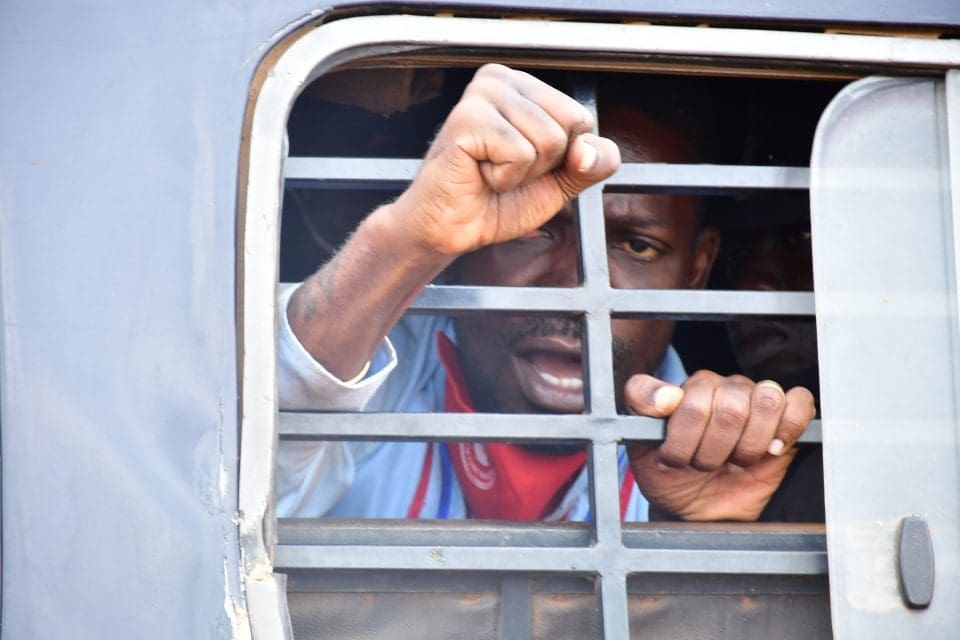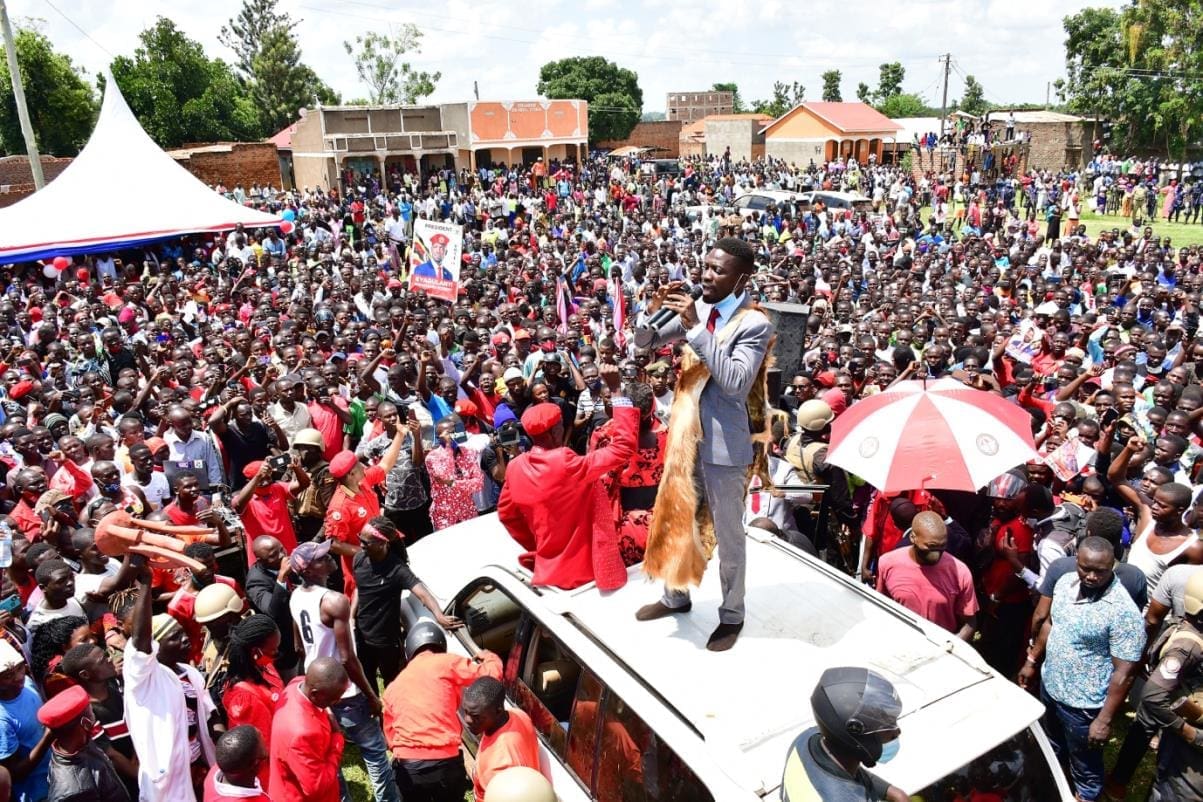
Over the span of five transformative years, Bobi Wine: The People’s President documents the inspirational yet turbulent real-life odyssey of Robert Kyagulanyi Ssentamu, also known as ‘Bobi Wine’. From humble roots in Kampala’s Kamwokya slums, to emerging as a popstar worshipped across the African continent, and ultimately (if not fatefully), becoming Uganda’s prime political liberator and challenger. The documentary emerges as a beacon of impactful storytelling, for which it was awarded a nomination at this year’s Academy Awards.
In conversation with Christopher Sharp, the film’s first-time director, our interview unveils the behind-the-scenes dedication and vision that brought this poignant narrative to the public stage. A timely reflection on a global political landscape stained by conflict, Bobi Wine reminds its viewers just how much is at stake, both in Uganda and across the world.
Guillaume Francois: Documentary filmmakers often have a deep connection with the stories they are telling. What initially drew you to this one?
Christopher Sharp: I was born and lived my early childhood in Uganda, while my father spent his whole life there, so naturally, I have a deep connection to the country. At the time we started filming, the president, Museveni, had been in power for 32 years. The population was clearly living under a military dictatorship. The presidential elections were a sham and just a facade to placate the West and its leaders, who needed to maintain a narrative to justify their relationship with, and continued funding of, Uganda. I recently saw an EU ‘world democracy chart’ where Uganda was labelled a democracy. To me that was a clear indication of Western complicity.
Eventually, I met Bobi and Barbie in 2017 and we quickly started discussing the upcoming Ugandan presidential elections. Bobi had, and still has, the incredible ability to bring people together through music, and had been using this talent as a means of political protest. He had his sense of duty to overturn the regime and expose its misrule, he was willing to risk his life for it. I understood documenting his story was essential.
GF: Did you envision this level of success when you began the project?
CS: No, not at all. The thing about making documentaries like this is that you never know where they’re going to end up. When we first started filming, we thought it was very likely that Bobi would end up imprisoned (which he was), or worse, killed. We took on this project not knowing how long we would be in it, or how it would end.
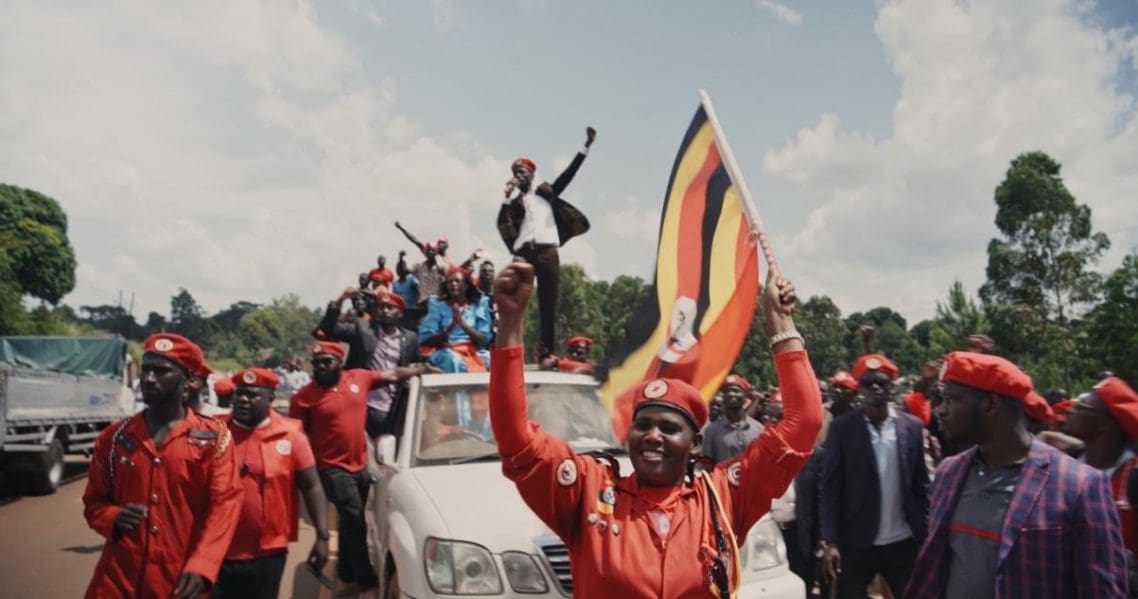
CS: Obviously, winning awards and being recognised with an Oscar nomination has been incredible. But as Bobi pointed out recently at a Q&A, we are not campaigning for an Oscar, we are campaigning for our country’s freedom. This recognition is so important because it’s helping us share Bobi’s and Uganda’s story with a much wider audience.
GF: The film shows us how powerful the media and public figures can be in shaping political narratives. What has their role been in influencing political discourse and change?
CS: For the first time, Ugandans now have hope that their struggle is being recognised and shared; it gives them the courage to keep fighting. This really highlights how crucial the media is for stories like this.
In 2018, Bobi’s driver was shot in the face, in a failed assassination attempt against Bobi himself. The subsequent media attention, particularly from prominent outlets like The New York Times, the BBC, and The Guardian, brought immense international scrutiny against Museveni and his army. The spotlight exposed his authoritarian tactics and pattern of violence against anyone opposing him. The media attention eventually forced his hand, leading to Bobi’s release from custody. It’s important to note that maintaining a façade of democracy is crucial for Museveni and his regime, who still receive western funding.
Cameras have also become Bobi’s safeguard. They serve as a shield whenever he is out in public and faces police brutality, preventing any potential intimidation by ensuring accountability. The threat of live streaming serves as the most effective defensive weapon at Bobi’s disposal. The media really has been an indispensable ally.
GF: Bobi Wine has been applauded for its observational approach. Can you discuss the challenges involved in staying neutral, especially when Bobi and his team were in such precarious situations?
CS: Our primary responsibility as filmmakers was to bear witness to Bobi’s struggle and amplify his voice and story, rather than inserting ourselves into the narrative. That meant sticking to the principles of journalistic integrity and objectivity, even when faced with immense pressure and frustration.
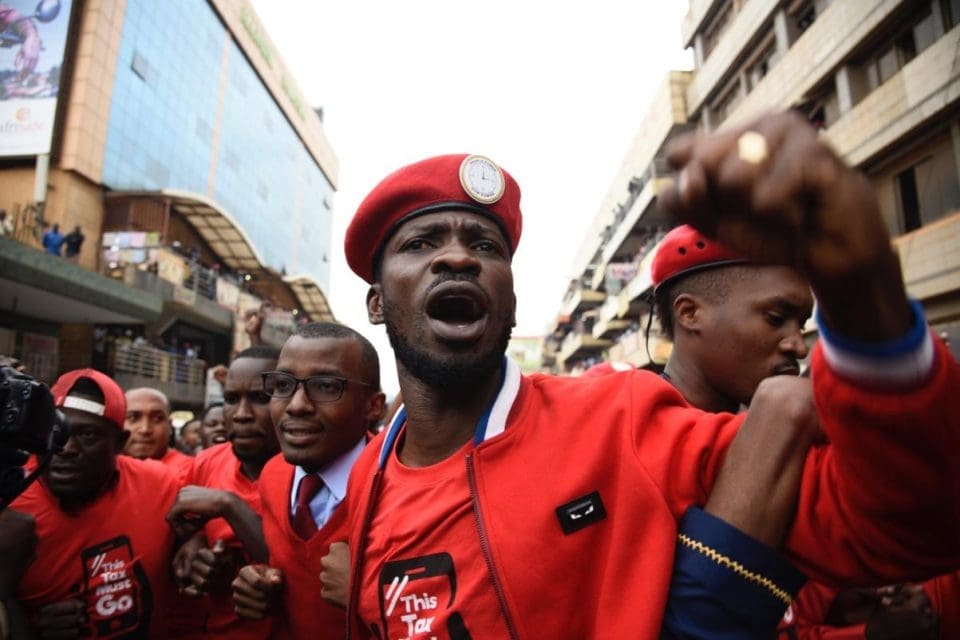
There were certainly moments when the temptation to get involved was overwhelming, especially when witnessing the more violent scenes you see in the film. However, crossing that line would have compromised the integrity of the documentary and undermined the trust people put in the story we are telling.
The editing room presented its own set of challenges, as we had to trim down over 4000 hours of footage into a coherent and accurate narrative, just under 2 hours. I think that the film very much tells a balanced and objective interpretation of the events we witnessed.
GF: What do you believe will happen to Bobi? Apparently, President Museveni’s son – General Muhoozi – has declared interest in succeeding his father?
CS: I wouldn’t rule him (General Muhoozi) out. However, he is incredibly unpopular in Uganda, especially among the military – without which he would be essentially powerless. His erratic behaviour, such as tweeting his desire to use the Ugandan army to invade Ukraine and Kenya, has damaged his popularity and credibility.
In the event of Museveni’s passing, should Muhoozi attempt to seize power, the political climate could become violent. But that’s not what Ugandans, its politicians, or even the military want – they are tired. Many MPs, while not inherently bad, comply out of coercion and fear, or self-interest. One could draw a parallel with the many Republican politicians in the United States who have sided with Trump purely out of ambition or self-interest. It is a similar thing with many of the elected officials in Uganda. I think once they understand that Bobi has a real chance of getting into power, they will jump ship.
GF: The documentary has many parallels with Alexei Navalny’s story: a dissident figure who leverages the power of the media to his advantage, making him more threatening to the authorities as his fame grows. This eventually endangers him even further. Could Bobi Wine’s story follow the same trajectory?
CS: The parallels are undeniable… I was with Bobi when we learnt about Navalny’s passing, and the news hit him really hard. It is a sobering reminder of the risks involved in speaking the truth against authority… They were in a similar position and showed similar bravery. Like Navalny, whenever Bobi is away from Uganda, all he wants to do is go back. They both understood the importance of being on the frontline, and that physical presence serves as a symbol of solidarity and resistance. I think Bobi has come to terms with the fact that he might not have a very long life. But once you go up against figures like Putin or Museveni, you cannot suddenly just throw in the towel.
One notable difference between the two is Uganda’s heavy reliance on the West. Museveni’s regime relies on Western funding, which Bobi hopes to use as leverage to instigate change and expose the current government’s dictatorial nature. If we can make the funding conditional and impose sanctions until Museveni starts respecting democratic principles, then there is a real chance for Bobi’s efforts to have the happy ending that Navalny’s did not have.
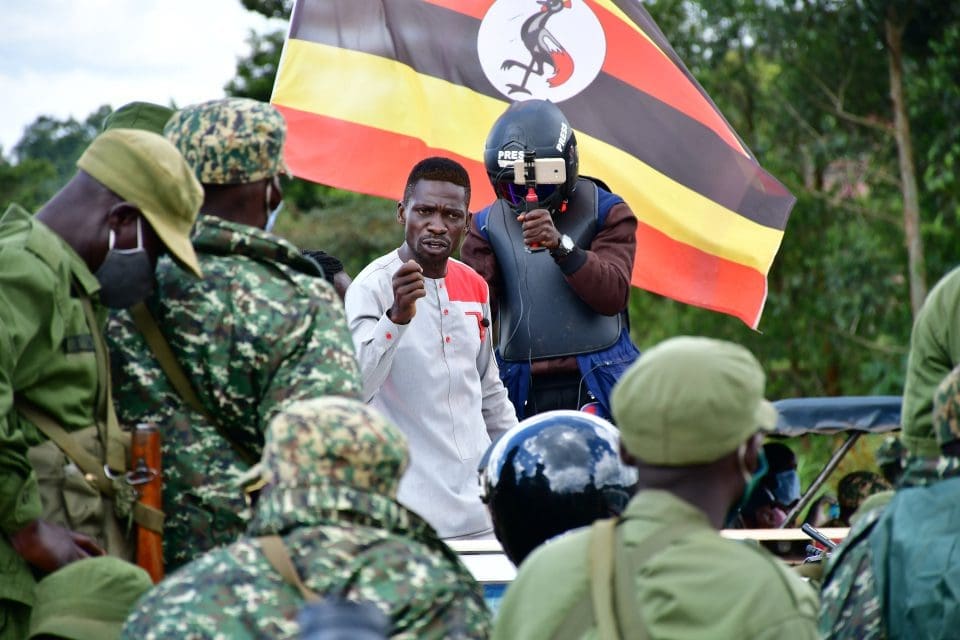
GF: Most of today’s commercially successful documentaries seem to revolve around true crime, or celebrity portraits. Yet the documentaries nominated at this year’s Oscars seem to break away from that. What has your experience been campaigning for a film challenging this status quo?
CS: While campaigning for Bobi Wine, we noticed a real interest for content that engages with real, impactful, global issues, moving beyond true crime and celebrity-focused narratives – which I suspect might be a response to the instability in current global politics – people want to understand and engage with the big issues, and are looking for documentaries that shed light on these matters.
Regarding the concerns about the absence of American documentaries in this year’s nominations, I believe it is more reflective of the diverse and global nature of this year’s nominees rather more than a bias against American filmmakers. Documentary filmmaking should not be restricted by geography but driven by the urgency and significance of the story being told.
I think it’s an exciting time for filmmakers to explore new stories and perspectives. The success of socially conscious films being nominated at this year’s Oscars will hopefully encourage filmmakers and distributors to invest in more untold narratives… local stories with global appeal.
GF: After completing such an impactful project, what’s next for you? Are there any other stories you are passionate about bringing to the screen?
CS: The plan is to stick to Bobi and Barbie, and continue documenting the evolving story of Uganda, which is far from over. The next chapter, in an ideal world, would be an intimate chronicle of Bobi winning the presidency – and documenting his efforts in rebuilding and unifying Uganda.
